A Labour Day Special
Book Box: Against all odds
In this edition of Book Box, we look at resilience and rethinking, from a new collection of profiles of successful Singaporeans to a bestseller on flexible thought
Sign up now: Get ST's newsletters delivered to your inbox
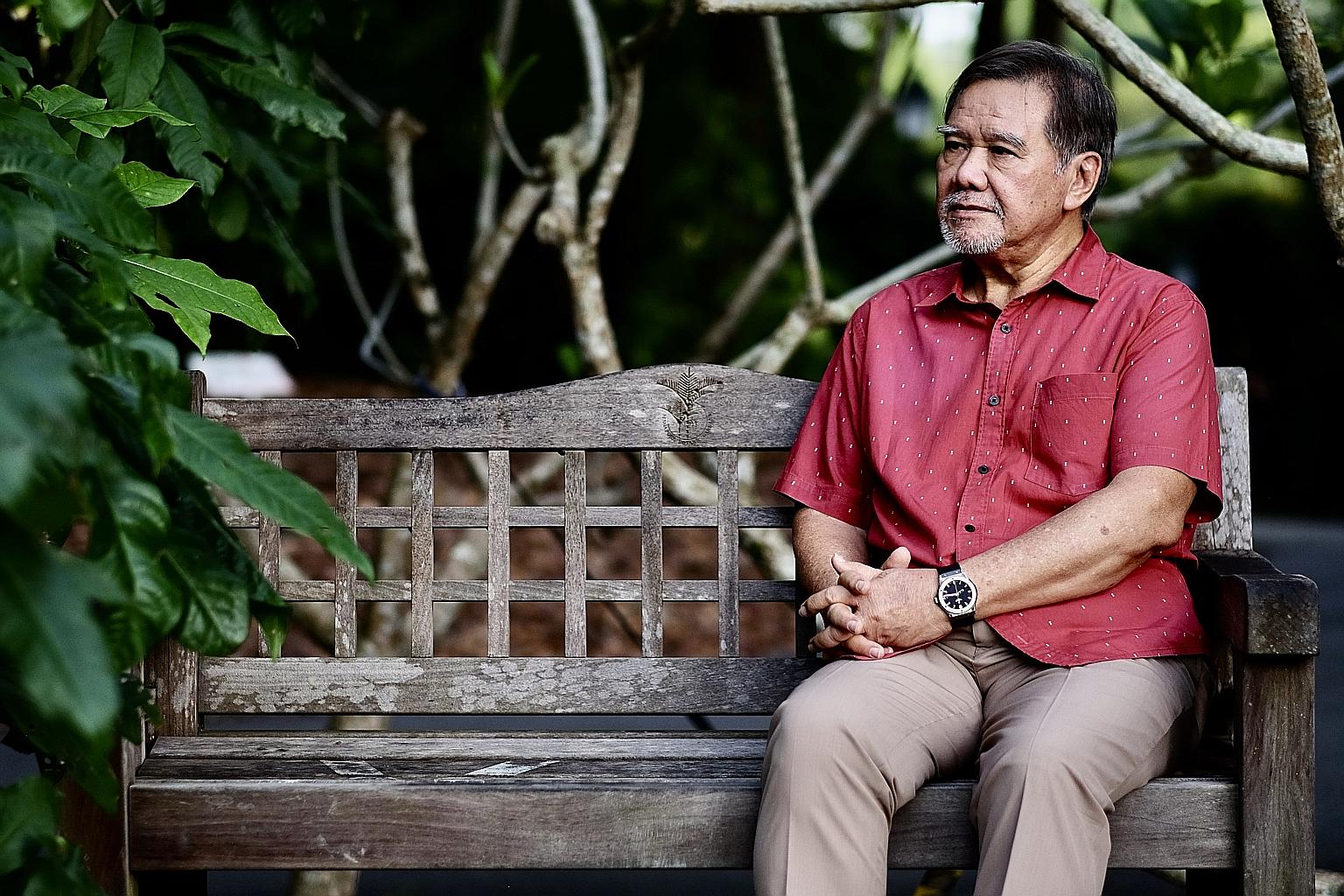
PHOTO: WRITE EDITIONS
In 2019, a few months before the onset of the Covid-19 pandemic, a group of 20 Singaporean seniors started walking together every Saturday morning in the rainforest of the Singapore Botanic Gardens.
This was part of the Nature and Mindful Awareness Study (Namas) by the National University of Singapore (NUS) Mind Science Centre, which sought to enhance physical, mental and social well-being in ageing.
The participants were mostly retired baby boomers with a mean age of 681/2 at the time. Many had been senior civil servants, corporate leaders, university professors and so on.
During their post-walk reflections, they shared stories of arduous childhoods, moments of risk and inspirational figures they looked up to.
While the pandemic raged, NUS professor Kua Ee Heok, who led the Namas study, and former Speaker of Parliament Abdullah Tarmugi decided to gather these stories into a book, Profiles In Resilience.
Here are four excerpts from the book, which is available for $40.66 at Books Kinokuniya.
Abdullah Tarmugi
The last thing I remembered before I drifted into unconsciousness was the anaesthetist whispering in my ear: "Just relax and breathe normally, Mr Abdullah. You're in good hands. You'll be fine…"
I regained consciousness in the Intensive Care Unit several hours later, with a dressed and sutured incision on my chest, my triple heart bypass surgery completed.
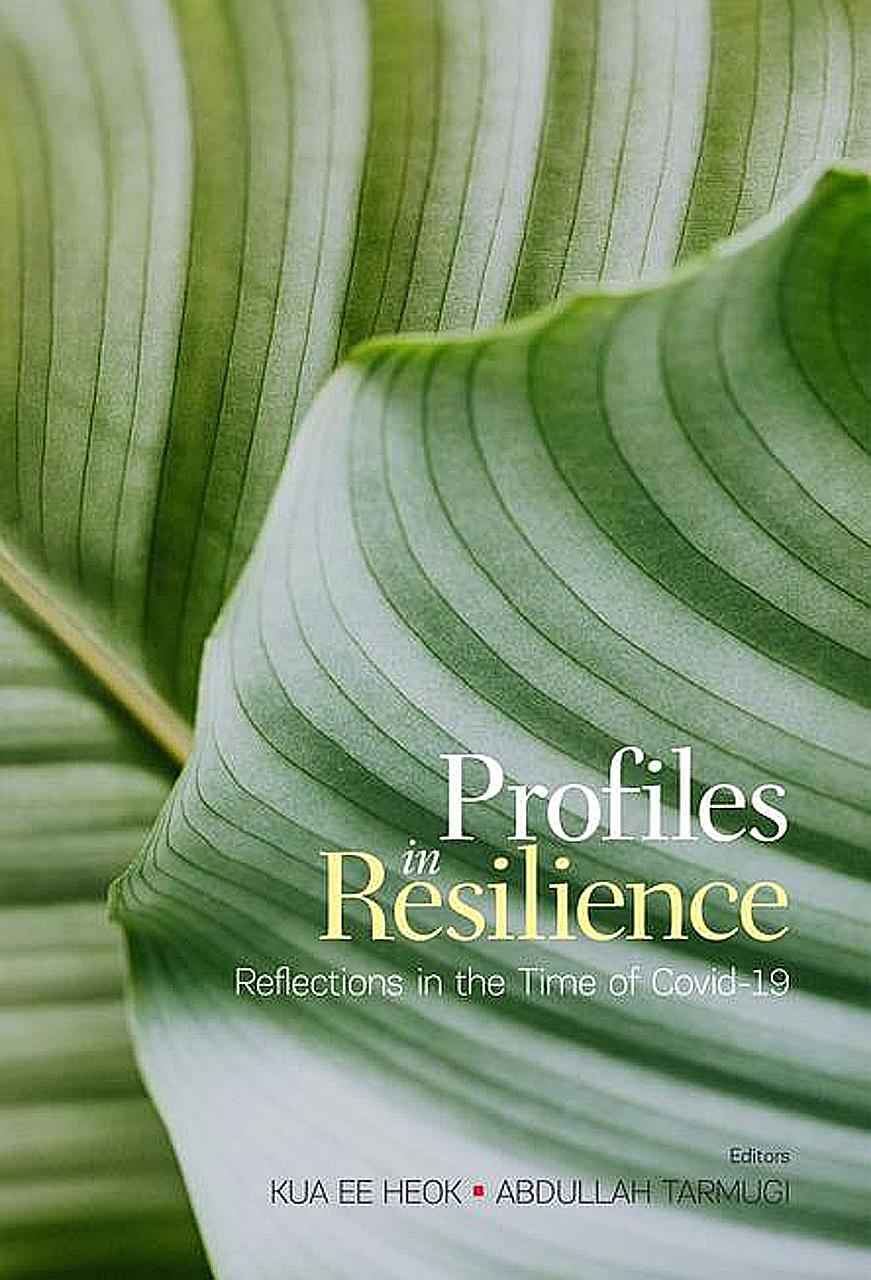
PHOTOS: WRITE EDITIONS
I tried to make sense of all that had happened to me those past few days: the sudden breathlessness and sweating in the middle of the night, the rush to hospital the next day, and now this!
A thought slowly surfaced from the deep crevices of my mind. It dawned on me that the Almighty could have taken me away if He had wanted to.
Tears trickled down my cheeks in deep and humble gratitude for this new lease of life. I was 54 then. That was in April 1998. This is a tale of what gratitude means in my life.
I was born at 11.59am, one year before the Second World War ended in Singapore; the Year of the Monkey, according to the Chinese horoscope.
The second child of parents who never went to school, my father eked out a living hawking gado gado in the afternoon and laboured as a surveyor's assistant in the morning, seven days a week.
My mother was a Teochew, adopted by my grandparents who emigrated from Java, like my father did.
My father was a man of few words, stoic almost. But beneath that unreadable exterior was a man capable of deep feelings and gentleness, one who would sacrifice for the family without a whimper or complaint.
My mother was the gentle, sensitive one, who instilled in me values like humility, empathy and gratitude. Above all, both taught me that a person's faith or skin colour meant nothing; only his character and what he stood for mattered. I think I've inherited both their DNA.
The family had little, just like most of our immigrant neighbours - Javanese, Bugis, Baweans and a sprinkling of Malays. The Chinese among us, too, were arrivals from various provinces in China.
Our childish joys were simple - playing in the rain with other children, wearing only shorts, while the little ones wore nothing. We swam and sailed paper boats in the overflowing drains when the roads flooded, among the flotsam and jetsam of the poor urban community.
Still, my three siblings and I were never short when it came to school uniforms or textbooks. It was only years later in my adulthood that I learnt how my frugal parents denied much for themselves, so that we children could go to school unhindered.
I remember how I hesitated to ask for my School Certificate (now O-level) exam fee from my mother. Unhesitatingly, she said gently: "Yes, give me a few days."
Again, only later did I find out that she pawned her meagre wedding jewellery to raise the money for my fees.
•Mr Abdullah Tarmugi, 76, has been a civil servant, journalist and politician. He was Minister for Community Development and Sports and Speaker of Parliament.
Eileen Bygrave
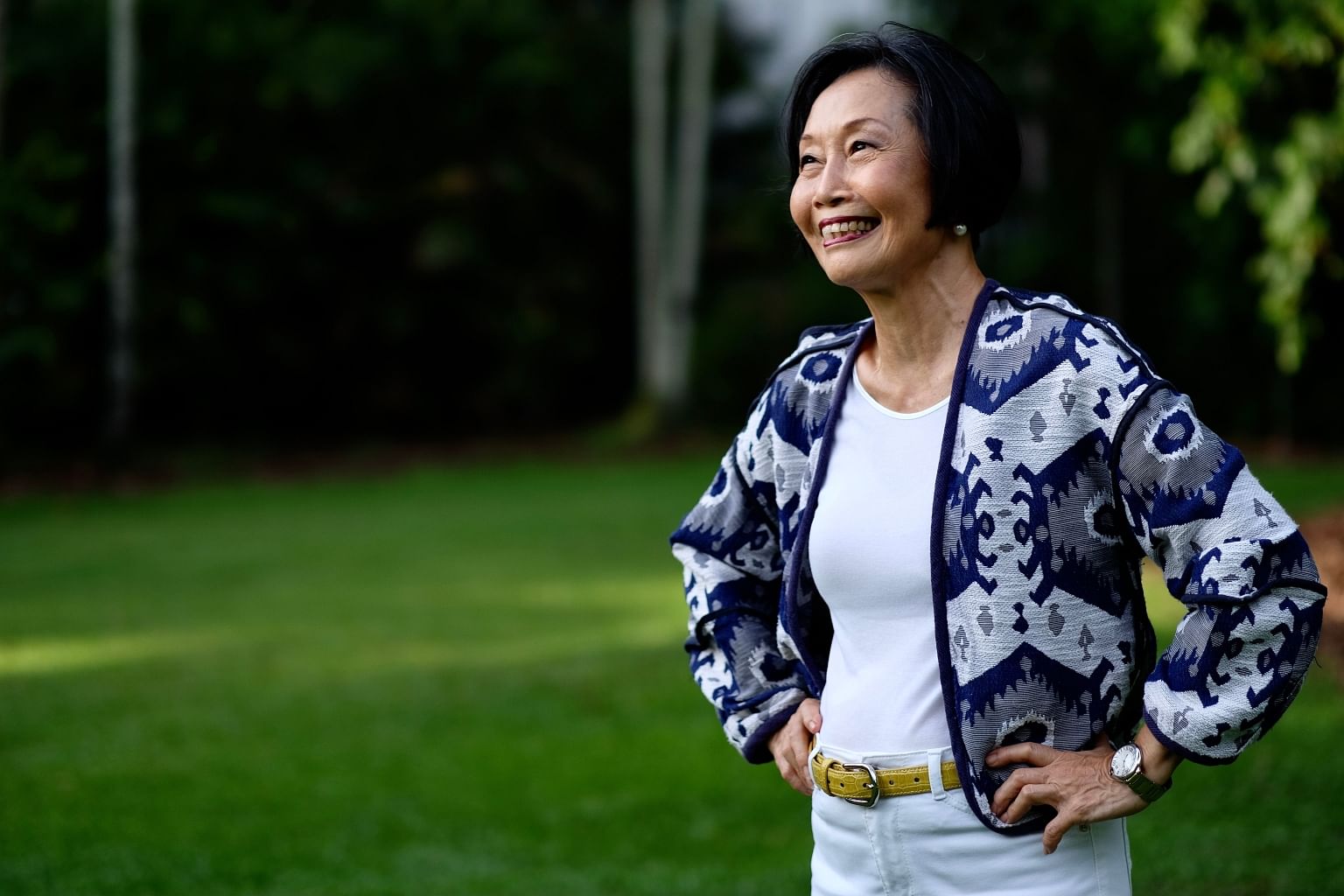
The past, the road straight ahead of me, is so clear. I love it. I see in the far distance Gopeng.
That was where I was born, during the Japanese occupation, in my maternal grandparents' Peranakan terrace house.
Seared into my subconscious are my strangled screams, smothered in the dingy laundry room when the Jepun troops burst in for their periodic inspections. My pretty, petite aunt was always hidden in the Swatow rice urn.
From the age of four to 10, my yearly visits to Gopeng were joyous. Grandfather was a handsome six-footer, a much-respected owner of a small rubber holding and a tin miner. After all, the village, just 12 miles south of Ipoh, was the centre of the prosperous Kinta Valley in Malaya.
One acrid pungent smell still assails my nostrils when I think of his shophouse across from our residence. That was of rubber sheets smoking in the rafters.
Never did I dream, whilst eating curry bee hoon or durian in Gopeng, that one day I would be in the glittering orbit of Paris, interviewing the haughty Karl Lagerfeld. Or that I would be in the Renaissance salons of the Palazzo Feroni Spini in Florence.
Was I poor? I did not think so, although oftentimes my father would worry about the rental of $20 he had to pay the Chettiars for our little cottage, address 11, Emerald Hill Road.
Our one-up, one-down abode was perched on a slope behind a real Peranakan street. Any torrential deluge would have plunged our tiled-roof home, with its tiny green-glazed windows, 15 feet into the back doors of the heritage houses, still much gawped at by tourists today.
With laughing Malay friends next door, we played masak-masak. What few words of Malay I speak today were learnt from them. Their father pushed a teh tarek cart to Koek Road every evening, loaded with iridescent and aromatic kuehs which the mothers and aunts baked. Somewhere I read that perhaps our President lived there once. Nice thought.
Fortunately for me, the school closest to that little cottage was the Singapore Chinese Girls' School and every tiffin time, my mother would slip a piece of kaya sandwich through a gap in the wire fence. That way we could save on pocket money.
There were only two instances when I might have considered myself poor. One was when my husband and I had our first son, born in Hong Kong. Jack was freelancing as a film director, and we were in the famine pendulum of our early marriage. There was no money for furniture, so for HK$200 I hired the bare necessities from Hollywood Road.
The baby slept in a Moses-type basket, wearing mainly gauze nappies, all bequeathed to me by a woman who had had her tubes tied. The basket rested on a wooden packing crate which we had salvaged from Singapore.
I dared not plead for help from my parents. After all, ours was a love match despite the hysterical dismay of my mother, who had protested, giving me seven reasons why my life would be doomed.
Two was when in 1995, my Hong Kong company seconded me as the general manager of the short-lived Lane Crawford Department Store in Singapore.
When it closed, I wanted to remain here, so, rather brazenly, I proposed to Television Corporation of Singapore (TCS) Channel 5, the predecessor of MediaCorp, that this burgeoning city desperately needed a TV fashion programme.
Thus was born Fashion Unlimited, a half-hour prime-time show. We had to move from the spacious, luxurious Ardmore Park home to one-half of a low-lying house in Linden Drive.
The exhausted house-movers asked me if they could load the rest of my chattels upstairs. I still recall the look of disbelief on their faces when I quietly told them that the 600 sq ft ground floor was all we had.
Darkness fell. Tired out, I sat on the floor and cried. Jack asked, "What is the matter?" I replied that my friends would never come to see me here.
He said: "If they are friends, they will come and see you. If they don't, they are no friends anyway. So, what are you worried about?" Now you know the secret of our happy marriage.
•Mrs Eileen Bygrave nee Keng Siok Hian, 77, was Europe's first Asian retail director for Italian luxury giant Salvatore Ferragamo and created the Singapore television series Fashion Unlimited (1996).
Wee Geok Hua
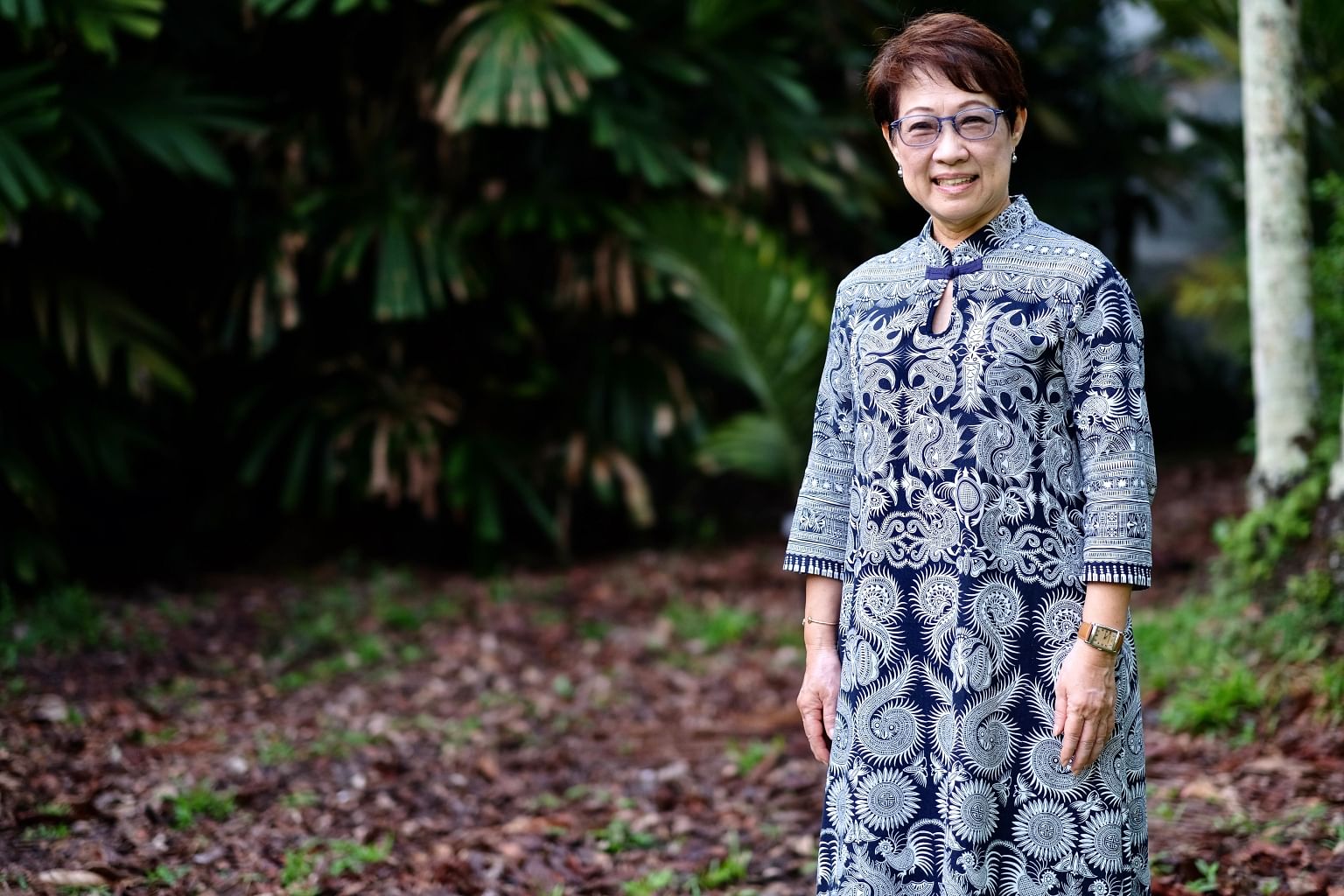
"I'm going to move nearer… Please put down the gun… Can you pass me the baby?"
Everyone in the kampung awaited an answer. Suspense and stillness filled the air. You could have heard a pin drop. My mind was racing as I expected to hear a loud bang. What was happening in the room? Grandma should be out with the baby by now!
Finally, after what seemed like an eternity, the door creaked. My grandmother stepped out of the door carrying the infant in her arms.
The door slammed shut again but she continued to wait outside, negotiating with the gunman calmly. It took ages before she stepped in again and the woman was finally released.
I remember this day very vividly. When I was still a young girl, my neighbour's son came running to our house one day. Flustered, he cried out to my grandmother: "Ah Po, please! Help! My father is pointing a gun at my mother!"
Without hesitation, she hurried over to his house. Running in her red wooden clogs and black samfoo pants flapping in the wind, grandma, a slightly rotund lady, must have cut quite an image.
By the time we arrived, the whole kampung had surrounded the house, albeit at a safe distance. News about a man holding his wife and newborn at gunpoint had spread around the village quickly. This man was a detective involved with vice syndicates and certainly not one to be trifled with.
Unfortunately, the couple had had a heated quarrel that afternoon. Unresolved, it led to the wife being held hostage by her husband.
The couple bore 11 children, 10 of whom clamoured outside the house, looking absolutely abandoned, frightened and lost.
All of us watched and waited, anxious. I wondered then why the men in the village did not intervene or step forward to help diffuse the situation.
This memory is always etched in my mind and my grandmother remains an inspiration to me to this day. She was undoubtedly fearless and her courage was certainly coupled with integrity and generosity.
While she did not have much, she was always lending money out, even though she did not always receive it in return.
Like most ladies of her time, my grandmother did not have an education. She was, however, generous, kind, warm-hearted, and always willing to listen and counsel our neighbours and friends who sought her advice.
As a young girl, I soon came to realise that grandma was an agony aunt. She was wise and well-respected all around. Even in my household, it was grandma who was the main caregiver and disciplinarian when the occasion called for it as my parents were usually busy with work.
My mother, on the other hand, has a gentle and kind disposition, and she is always thoughtful of others.
Now, in her old age and diagnosed with dementia for more than a decade, she has been able to delay the full-blown effects of the disease by going to the gym for her weekly dose of exercise, as well as the community centre where she plays Bingo with other elderly people.
With multiple health conditions and as a cancer survivor, she has her medical appointments recorded on a spreadsheet.
She has wonderful support and care from all her children and daughters-in-law for which I am truly thankful. Her patience, kindness and forbearance are qualities which I personally still have much to work on!
•Mrs Wee Geok Hua, 67, teaches meditation and mindfulness practice at the NUS Mind Science Centre and has been a volunteer befriender at Dover Park Hospice.
Kua Ee Heok
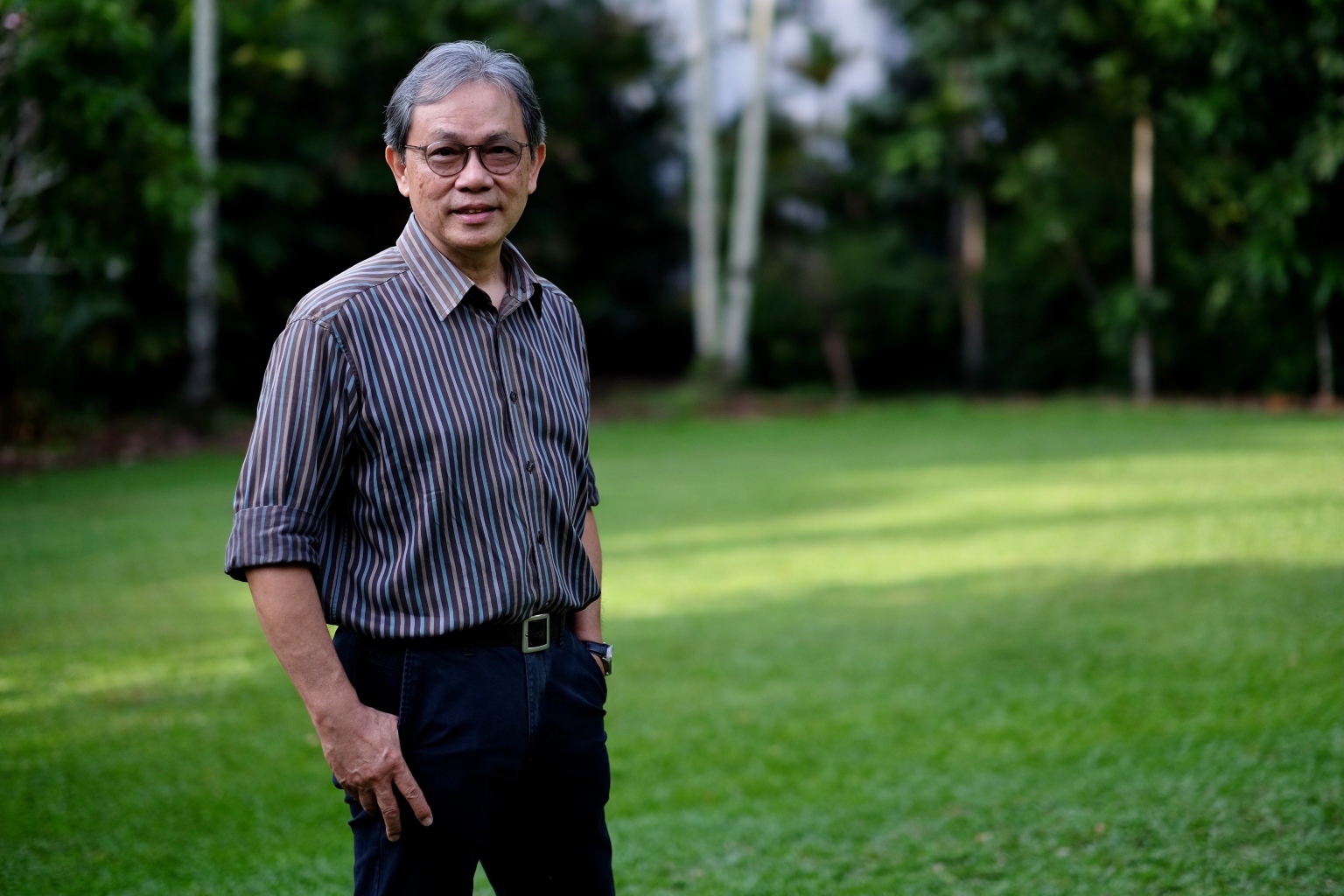
One sultry afternoon, I received a frantic telephone call from a resident at the Emergency Room (ER).
"Prof, can you come to ER immediately? There's a crisis here! We have a dangerous patient and she has smashed the window with a bottle."
"If she's dangerous, call the security," I replied.
"The security guards are here but they don't know what to do and they asked me to call the consultant."
As I hurried to the ER, the resident told me on the handphone that the patient was enraged when he spoke to her about admission to the mental hospital.
Apparently, she had threatened suicide and wanted to kill her boyfriend who had broken off their relationship. The hospital guideline for residents is to admit any suicidal or homicidal patients to a psychiatric ward or mental hospital.
When I entered the ER, I could perceive the tension in the air. In the stand-off was an angry young woman with a broken bottle in her right hand and a nurse trying to persuade her to put down the bottle. The resident briefed me on the situation as I walked slowly towards the patient.
I introduced myself and asked if we could speak alone in the consultation room. She agreed. In the quiet room, I invited her to sit down and noticed tears in her eyes. I said softly: "You must be very sad."
Immediately there was a torrent of tears as she cried uncontrollably and dropped the bottle. I breathed a sigh of relief.
To allay her anxiety, I told her she would not be admitted but should come to my outpatient clinic the next day. When she was more composed, she explained how her anger erupted when, instead of the expected sympathy from the doctor, she was told that she would be sent to the mental hospital.
Later I told her mother: "She will be better after a few days."
"You're sure, doctor? I was terrified when she could not sleep and refused to eat for a week. I thought she had become insane and would never recover," she sobbed. "So there's hope. Yes, I shall bring her back tomorrow."
The resident was visibly pleased the crisis was over. "I was so glad to hear you giving hope to the mother that she will recover."
"Every case is different. I did not admit her because that would break the therapeutic relationship. It's a crisis intervention and if you look into her eyes, you realise she is sad and not mad. We should not just follow the rules of engagement blindly in emergency psychiatry."
I saw her as an outpatient twice a week for psychological therapy and she was discharged after a month.
At the last session she confided: "I almost lost my mind when I sank into the depths of depression. The therapy has helped me recover and given me hope."
•Professor Kua Ee Heok, 72, is the Tan Geok Yin Professor in psychiatry and neuroscience at National University of Singapore. He is the former chief executive and medical director of the Institute of Mental Health.


